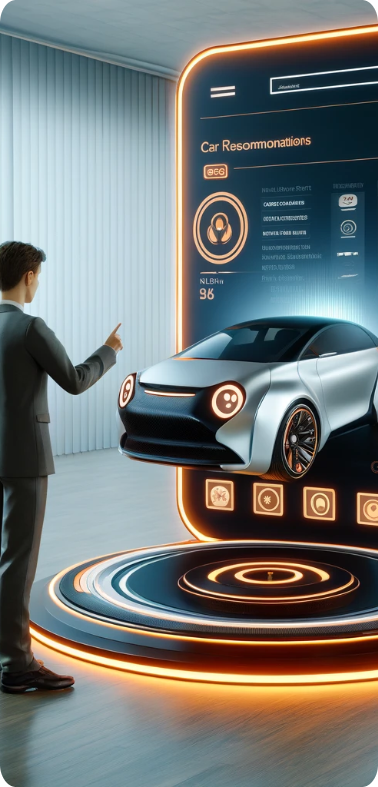Navigating the Automotive Marketplace: Deciding Between New and Used Cars
May 31, 2024
|
By Phil Sura, CarNext Autos

In the dynamic landscape of the automotive marketplace, making the decision to buy a new or used vehicle requires careful consideration of various factors. From budgets and market trends to personal preferences, determining the optimal choice involves weighing multiple considerations. Let's explore the current state of the automotive marketplace and determine whether it's a good time to buy a new or used car.
Economic Landscape and Market Trends
- Supply Chain Disruptions: Recent supply chain disruptions, including semiconductor shortages and manufacturing delays, have impacted the availability of new vehicles, leading to increased demand for used cars. The reduction of new car sales also resulted in fewer trades for the automotive dealers. Dealers typically rely on traded units as a critical source for their used car inventory. As a result, the supply-demand imbalance has influenced pricing dynamics in both the new and used car segments.
- Resurgence in Demand but recent slowdown: Following the economic downturn experienced during the pandemic, there had been a resurgence in demand for vehicles. This trend is slowing down for many auto manufacturers. April 2024 passenger car sales decreased 10.7% while SUV and truck sales decreased 0.1% over March numbers (Source: Marklines Automotive Industry Portal). If the latest trends continue, prices on new cars should drop in 2024 as the industry moves beyond the supply-chain issues associated with the pandemic.
- Consumers are holding onto their vehicles longer: A study published by S&P Global Mobility, May 22, 2024, revealed that U.S. vehicles hit a record average age of 12.6 years in 2024 (Source VOA May 26, 2024). A likely factor with the length of time that consumers keep their cars is the average cost of a new car hitting $45,000 (Source: J.D. Power). Increased service visits and expense does become a motivation to start the process with purchasing a new or newer pre-owned unit.
Pros and Cons of Buying New Cars
- Latest Features and Technology: Purchasing a new car offers access to the latest features, technology, and safety advancements, providing a peace of mind for buyers who prioritize innovation.
- Warranty Coverage: New cars typically come with manufacturer warranties, offering comprehensive coverage against unexpected repairs and maintenance costs for a certain period, which can provide added assurance to buyers.
- Depreciation Concerns: New cars experience significant depreciation in the first few years of ownership, leading to a higher initial depreciation hit compared to used cars. Buyers should consider the long-term cost implications of depreciation when evaluating new car purchases.
Pros and Cons of Buying Used Cars
- Cost Savings: Used cars generally come with lower upfront costs compared to new cars, making them an attractive option for budget-conscious buyers seeking value for their money.
- Variety and Availability: The used car market offers a diverse range of makes, models, and options to choose from, providing buyers with a wide selection and greater flexibility in finding a vehicle that meets their specific needs and preferences.
- Condition and Reliability: While buying a used car can result in cost savings, buyers should exercise caution and thoroughly inspect the vehicle's condition, review its maintenance history, and consider factors such as mileage and age to ensure reliability and longevity.
- Consider Certified Pre-Owned Vehicles: Many manufacturers offer a Certified Pre-Owned program. These vehicles are required to go through an extensive inspection process and qualify for extended warranties. Some dealers offer a Certified Program which may not provide the same protection as a factory plan.
- Service Contracts are an option for most pre-owned vehicles: Consumers have the option of purchasing a service contract from the dealership. I would recommend a plan backed by the manufacturer. This will potentially provide better options for coverage at other dealerships.
Is it a Good Time to Buy?
- New Cars: Given the current market conditions, prices for many models are expected to be adjusted down. A high percentage of new car customers finance their new car purchase through their bank, credit union or the lenders offered at the dealership. Payments are impacted by market conditions, cash down, credit scores and bank rates. It is a good idea to shop rates.
- Used Cars: The market will slowly adjust back to pre-pandemic conditions but it will take years for a full recovery. With increased demand driving up prices in the used car market, buyers may face higher costs. The availability of diverse options, service contract options and potential for cost savings make buying a used car an appealing option for many consumers.
Conclusion: Making an Informed Decision
In conclusion, as vehicles are retained for longer periods of time, consumers will pay the price with more frequent and higher cost service visits. This will influence consumers to consider options. Buying a new or pre-owned vehicle will always be impacted by individual circumstances, preferences, and priorities. Buyers have more tools than ever to research market conditions, and consider factors such as pricing, availability, and long-term cost implications before making a decision. By weighing the pros and cons of each option and conducting thorough due diligence, consumers can navigate the automotive marketplace with confidence and make informed choices that align with their needs and goals. The purchase of a new or pre-owned car is typically the second most expensive purchase that a consumer makes. Enjoy the journey.







